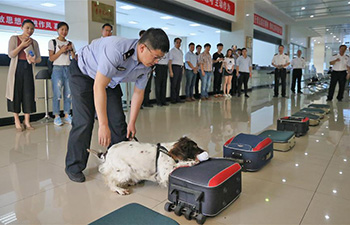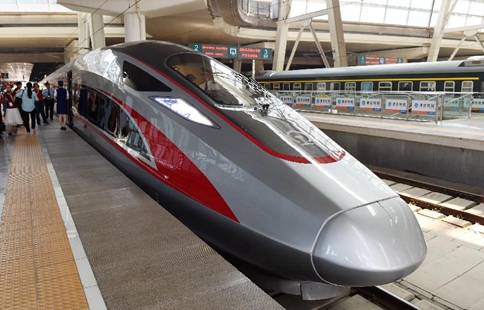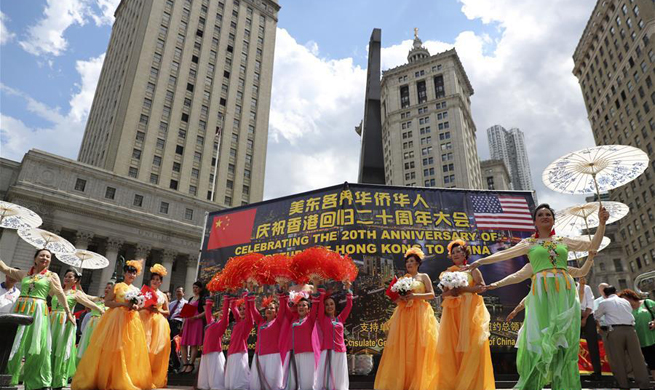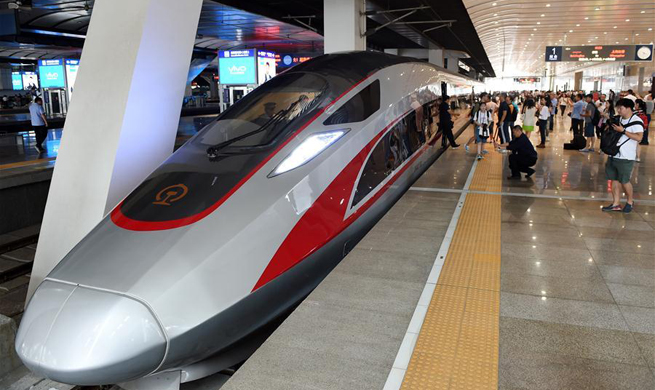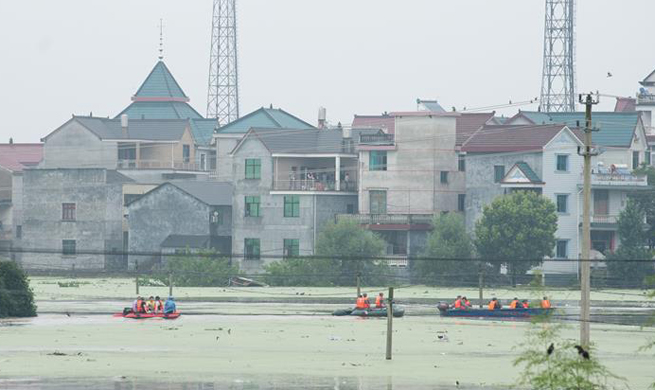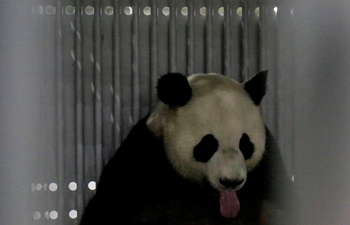BERLIN, June 26 (Xinhua) -- Representatives from parties across Germany's political spectrum criticised Martin Schulz heavily on Monday after he made statements at the SPD party conference last weekend, accusing Chancellor Angela Merkel (CDU) of "attack on democracy."
Hoping to reinvigorate the SPD's electoral fortunes, Schulz went on the offensive against the conservative Christian Democratic Union (CDU) and its sister party the Christian Social Union (CSU) at the conference in Dortmund.
Schulz accused Merkel of the "arrogance of power" in trying to lull the German public into a state of political apathy by depicting herself as the only viable alternative in elections.
The CDU/CSU were hoping for a low voter turnout, he said, describing this tactic as an "attack on democracy."
Although known for his fiery rhetoric, the comments were the harshest yet to be made on the campaign trail by Schulz.
Conservative politicians promptly hit back, with CDU deputy chairman Armin Laschet calling Schulz' accusations "absurd."
Nonetheless senior party figures broadly backed Schulz' performance at the conference where he was seen to have convincingly argued that the SPD can still win upcoming national elections in September.
Following a short upswing in the polls, the SPD has suffered a series of setbacks since Schulz, former president of the European Parliament, took its helm in March 2017.
The SPD has lost three recent elections at the state level in Saarland, Schleswig-Holstein and North Rhine-Westphalia, and is languishing behind the CDU/CSU in national polls.
In a "stern-RTL-Wahltrend" survey published last week, only 23 percent of respondents supported the SDP, compared to a combined 39 percent backing the CDU/CSU.
The figures were worse still when it came to a comparison of political personalities.
53 percent of those surveyed would vote for Merkel directly to assume the chancellorship for a fourth time if they could. Only 22 percent of respondents indicated a preference for Schulz in the same category.
While Schulz' weak showing in polls has raised questions over his ability to successfully compete against Merkel for Germany's highest political office, the SPD leader received prominent support from fellow party member and former Chancellor Gerhard Schroeder.
Referring to his own strong showing after unfavorable polls in the 2005 national elections, Schroeder voiced a belief that "what was possible then, is possible now."
In a show of unity and support, the SPD unanimously passed Schulz' electoral manifesto which includes pledges to raise taxes on high-income earners and reduce the fiscal burden for the lower and middle classes.
Thomas Opperman, head of the SPD faction in the Federal Parliament (Bundestag) defended Schulz lashing out against Merkel as being a necessary part of election campaigns.
Opperman went on to describe the party leader as "the right man to win over undecided voters" and said of Schulz that "there has never been a better match between a person, a program and a party."
But the optimism showcased by the SPD during and after its conference was not shared by its political rivals.
Senior CSU politician Gerda Hasselfeldt told press on Monday that what the SPD was proposing as a "plan for the future" was in fact more of the same. She expressed disappointment that the party had "once again focused on redistribution alone" when it came to taxes.
The Left party (Linke) in particular, which competes with the SPD for a similar left-leaning segment of the electorate, took the Social Democrat conference as an opportunity to pounce on Schulz' manifesto.
The head of the Left faction in parliament, Sahra Wagenknecht, described the SPD conference as "the final stage in a great disillusionment."
"Nobody needs an SPD which has no distinguishing features from the CDU/CSU."
In contrast, the Green party leader Cem Oezdemir criticised what he saw as the SPD manifesto's excessive weakness on climate change.
The SPD had indicated no position on the use of coal as a power source and called for a shift to renewable energies by 2050 "without specifying a clear instrument," Oezdemir lamented.





